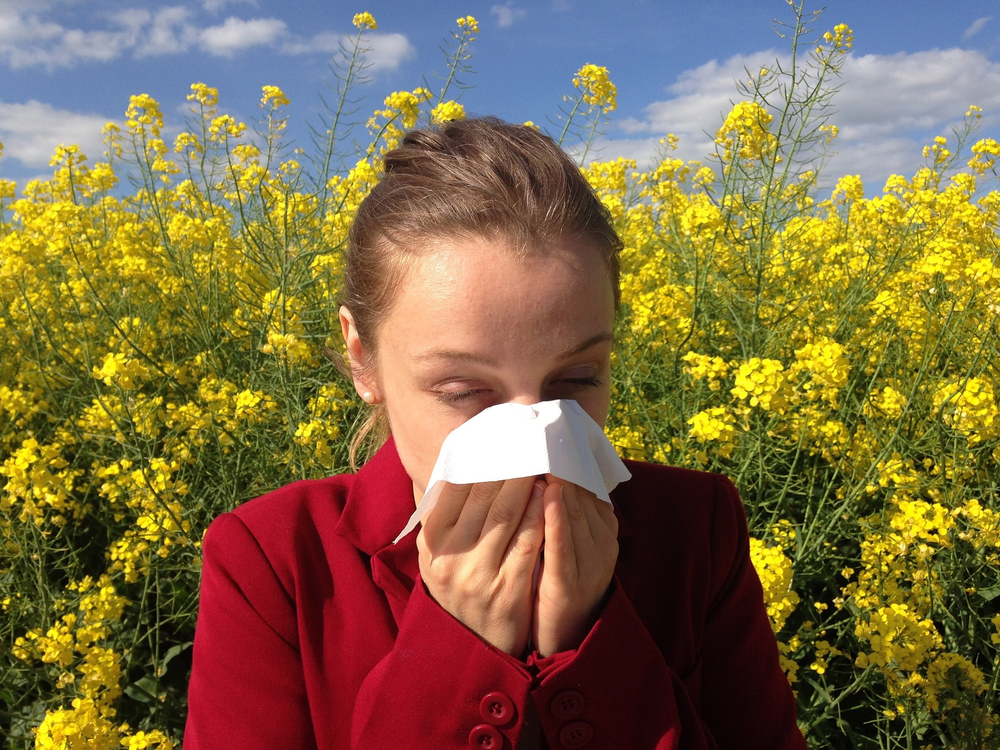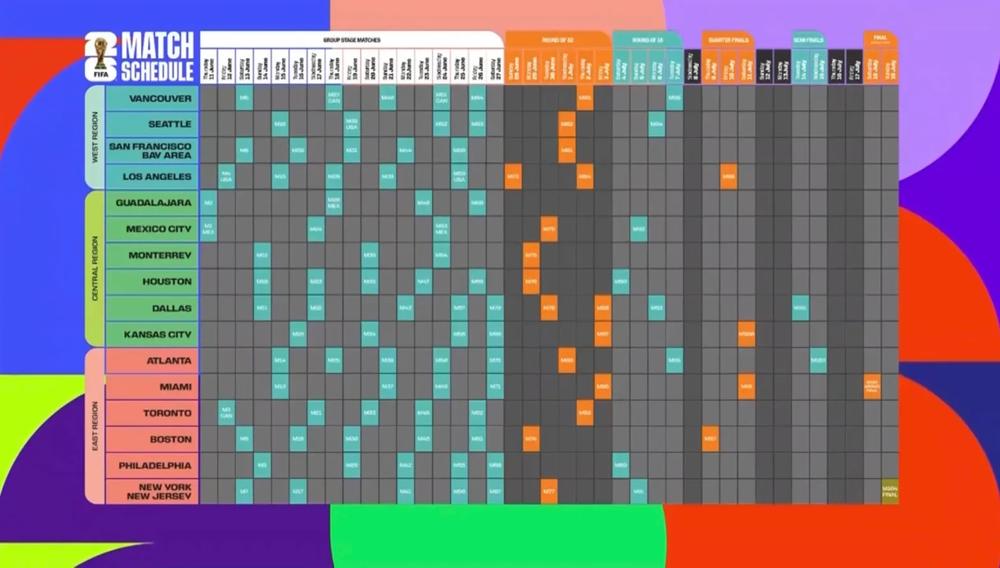
Section Branding
Header Content
Georgia Today: Crossover Day report; Bloody Sunday anniversary; Climate change and allergy season
Primary Content
On the Friday, March 7 edition of Georgia Today: Yesterday was Crossover Day at the State Capitol. We'll tell you which bills failed, and which ones cleared the hurdle. Also, it's the anniversary of the event known Bloody Sunday, which galvanized support for the Voting Rights Act of 1965. And how are warming temperatures affecting the length and intensity of allergy season?

Orlando Montoya: Hello and welcome to Georgia Today from GPB News. On this podcast, we feature the latest reports from the GPB Newsroom. Send us story ideas or feedback to GeorgiaToday@GPB.org. Today is Friday, March 7. I'm Orlando Montoya. Coming up on this episode: yesterday was crossover day at the state Capitol. We'll tell you which bills failed and which ones cleared the hurdle. Also, it's the anniversary of the event known as Bloody Sunday, which galvanized support for the Voting Rights Act of 1965. And how are warming temperatures affecting the length and intensity of allergy season?
Speaker 2: When the spring season arrives, the plants go, "It's time to start producing pollen," and we're seeing that a lot earlier.
Orlando Montoya: These stories and more are coming up on this edition of Georgia Today.
Story 1:
Orlando Montoya: Thursday was Crossover Day at the Georgia state Capitol. That's the day that bills must either clear at least one chamber or die for the year. The House speaker announced at the end of the marathon session last night that a record number of bills, 75, crossed over, largely with bipartisan support. GPB's Donna Lowry says one of the measures that made it was an income tax cut.
Donna Lowry: And that's something Gov. Kemp has championed. And members also approved another round of tax refunds: $250 for singles, 500 for married couples filing jointly. Also, a wrongful compensation bill was passed in the House for five individuals found innocent of crimes after serving time. That bill afterwards received applause from the members.
Orlando Montoya: And GPB's Sarah Kallis reports on more bills that cleared the hurdle.
Sarah Kallis: The Senate passed multiple school safety bills on Crossover Day. Ricky and Alyssa's Law, named after school shooting victims, requires every school property in the state to be mapped and the data to be shared with law enforcement. Sen. Jason Anivitarte sponsored the bill, which passed with bipartisan support.
Jason Anivitarte: Our folks and friends in the public safety community know where to go to find the assailant, where to go save lives, where to evacuate people.
Sarah Kallis: They also passed bills to require schools to share disciplinary records when a student transfers and to add a new criminal charge for students threatening violence. Senators also passed a bill to increase the limit of THC in medical cannabis and expand access to more patients, and a bill to ban THC beverages. For GPB News, I'm Sarah Kallis at the state Capitol.
Story 2:
Orlando Montoya: Legislation allowing for the possibility of sports betting in Georgia failed in the state House. House Resolution 450 and House Bill 686 sought to legalize online sports betting, but the measures never made it to the floor for a vote. Another controversial bill that failed to cross over would have banned diversity, equity and inclusion programs from K through 12 schools and colleges. The bill would have prevented schools from promoting, supporting or advocating for any programs that supported DEI.
Story 3:
Orlando Montoya: More than 100 scientists, researchers and their supporters showed up for a "stand up for science" rally outside the Georgia Capitol this afternoon. GPB's Amanda Andrews reports they were there to speak out against federal funding cuts affecting workers as part of a national day of action.
AMBIENCE: Crowd of protestors
Amanda Andrews: Speakers at the rally spoke about the importance of vaccines, scientific research and funding for organizations facing cuts like the Centers for Disease Control and Prevention and the National Oceanic and Atmospheric Administration, or NOAA. Holly Williams worked at the CDC for 20 years. She says she's hearing through her contacts the chaos is impacting remaining researchers.
Holly Williams: People get fired, they get rehired, other people get fired. Center directors do not even know how many people are fired because DOGE is not telling them.
Amanda Andrews: Meteorologist John Knox says funding cuts to NOAA will affect private industries, from agriculture to clothing to your favorite weather app.
John Knox: Without NOAA and the information that's gathered and the model output that NOAA provides, those private sector firms are going to have to go to the groundhog to ask for forecasts.
Amanda Andrews: Speakers at the rally also include state Reps. Jasmine Clark and Jason Estevez, and faculty from Georgia Tech and Emory University. For GPB News, I'm Amanda Andrews.
Story 4:
Orlando Montoya: National Weather Service has issued a fire danger statement for north and central Georgia. The agency says with low humidities, any fires that develop could spread quickly and outdoor burning is strongly discouraged.
Story 5:
Orlando Montoya: Today marks 60 years since civil rights leaders, including Georgia congressman John Lewis and Rev. Hosea Williams, marched across the Edmund Pettus Bridge in Selma, Ala. The peaceful march was broken up by brutal violence from law enforcement. That day became known as Bloody Sunday. It galvanized support for the Voting Rights Act of 1965. This weekend, events are planned in Selma to commemorate the 60th anniversary, including the Selma Bridge Crossing Jubilee.
Story 6:
Orlando Montoya: The U.S. Small Business Administration, led by former Georgia U.S. Sen. Kelly Loeffler, says it will relocate its office in Atlanta. The agency says it's doing so as part of a broader strategy to crack down on what the Trump administration calls sanctuary cities. There's no legal definition for sanctuary city, and local officials generally avoid the term, but they're usually considered welcoming of immigrants. The agency gave no details and did not respond to a request for comment about where the Atlanta office and five others targeted for relocation would be moved to. The SBA's statement yesterday said only to, quote, "less costly, more accessible locations that better serve the small business community and comply with federal immigration law."

Story 7:
Orlando Montoya: Last week, like many people in Georgia, I woke up one morning to terrible allergies stuffy nose, sneezing, watery eyes, the whole nine yards — and it wasn't even March. My next guest says a growing body of research shows that warming temperatures linked to climate change and greenhouse gas emissions are lengthening and intensifying our allergy season. Lauren Casey is a meteorologist with Climate Central. She joins me now. Welcome to GPB.
Lauren Casey: Thank you for having me.
Orlando Montoya: First of all, let's talk about how allergies relate to climate. It's the pollen and mold, obviously. But how do warming temperatures unleash the pollen and the mold earlier and more intensely?
Lauren Casey: Great question. Yeah. So when those temperatures start to warm up during the season, when the spring season arrives, the plants perk up and they know, "OK, it's time to go. It's time to start producing pollen." And we're seeing that start a lot earlier, dipping into what we would consider the winter season. So that is lengthening that allergy season to be even longer.
Orlando Montoya: How much longer? 20 days? 10 days?
Lauren Casey: For the Atlanta area 36 days, an increase in 36 days in your freeze-free season since 1970. So over a month.
Orlando Montoya: And outside of Atlanta?
Lauren Casey: Sure. So for Albany, Ga., there's an increase of 28 days in the freeze-free season, 15 days in Columbus, Ga., 12 in Savannah and Macon, Ga., actually saw a decrease.
Orlando Montoya: I tend to think of rain as washing the pollen out of the atmosphere. Is there any correlation between rain, wind, and other weather-related factors to allergies?
Lauren Casey: That's a great question. A little complex. You know, typically we think rain comes in and washes away some of that pollen, gives us some relief — which is true to a point, except when we have heavy or intense rainfall. What that can do, when it encounters those pieces of pollen, is break them down even smaller into sub-pollen particles that are more easily transferred by wind, and also more easily able to enter your lungs and your airways and cause that irritation.
Orlando Montoya Your report says that human-caused warming accounted for about half of the shift toward earlier pollen seasons and about 8% of the rise in concentrations during the seasons. How do you measure that human factor?
Lauren Casey: Yeah, we measure that through the use of attribution science. So what that entails is we take these climate models — very sophisticated based on math — and we essentially can look at the world without climate change and then compare it to the present world that we live in and analyze the difference.
Orlando Montoya: Seasonal allergies are unavoidable for most people. They've always been a part of my life. But apart from medication, what are some steps that people can take to mitigate the suffering?
Lauren Casey: I think awareness is an important key to this, knowing that the allergy season is lengthening and having that awareness so you can best treat yourself. So you can make sure, "Oh, I already went to the store and have that medicine on hand" when the sniffling and the sneezing starts. Or same case for your family members, for your children. About 1 in 5 children across the U.S. suffer from seasonal allergies, so making those preparations, I think, is important.
Orlando Montoya: Well, we'll keep an eye on the forecast — the allergy forecast and the weather forecast. I appreciate your time today. Lauren Casey, meteorologist with Climate Central. Thanks for joining me.
Lauren Casey: Thanks so much.

Story 8:
Orlando Montoya: Atlanta's participation in the 2026 FIFA World Cup now officially has a sound.
SOUND: 2026 FIFA World Cup Sonic ID
Orlando Montoya: That is the sonic ID that the world soccer governing body FIFA released for Atlanta yesterday. 26 such themes were produced, one for each of the Cup's North American host cities, highlighting each city's quote, "distinct rhythm, vibe and cultural essence." Atlanta's Sonic ID was composed by Grammy-winning songwriter and producer Dallas Austin. Atlanta will host eight matches and soccer's biggest tournament beginning in June 2026.
And in other soccer news, this weekend Atlanta United will face the New York Red Bulls at Atlanta's Mercedes-Benz Stadium. It's the first of several home matches over the next five weeks. Atlanta are coming off a 2-0 loss to Charlotte last weekend and will be without two fullbacks, Brooks Lennon and Ronald Hernandez, and forward Jamal Trey, who are out on injury. In their first two matches of the season, the Five Stripes struggled to remain competitive in the second half of each game, and the Red Bulls are historically a difficult matchup for Atlanta.
And that's it for today's edition of Georgia Today. If you'd like to learn more about these stories, visit GPB.org/news. Hit subscribe on this podcast so you stay current with us in your feed. And if you have feedback or story tips, send us an email at GeorgiaToday@GPB.org. I'm Orlando Montoya. I hope you have a great weekend and join us again next week.
---
For more on these stories and more, go to GPB.org/news



